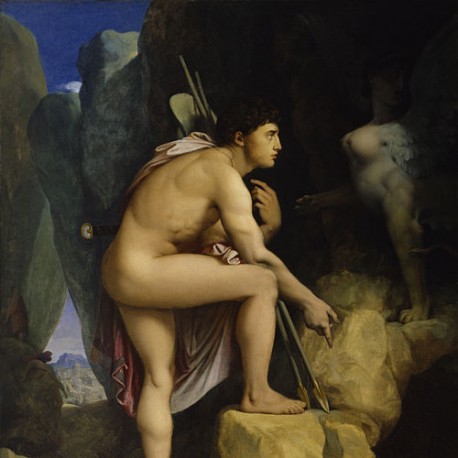
Postclassicisms and Reception Studies: What is Classical Knowing?
One of the main questions that has evolved from our discussions so far is: What is the relationship between Reception Studies and what we’ve been calling “postclassicisms,” by which we mean the field of Classics more broadly as it has expanded beyond the canon, into the periods between us and antiquity—reception studies “proper”—, but also into other disciplines, such as the sciences, and into other geographical areas of the ancient world; as it probes the question of the relationship of past and present with more methodological self-consciousness and rigor; and as it develops a set of disciplinary and institutional practices that, building on the growing understanding of the discipline’s own history, take a critical distance from traditional models of exclusion and hierarchy while respecting, strengthening, and reconceptualizing core skills and techniques (such as language training). In other words, we assume that Reception Studies will be central to the project while serving, at the same time, as a springboard to broader reflection. It’s also clear that reflection must include an ongoing interrogation of the very status of “Classics” or “the classical” as a site of value, both in the past and in the present.
Much of the spring in our springboard will come, it seems, from an exploration of what exactly reception is. We do not presume that Reception Studies is a unified field, and so the question pertains in part to the overlap (and divergence) between different disciplines: Is reception the same enterprise in art history and political theory? Performance studies and the history of philosophy?
One of the aims of our first workshop is to bring in people from other disciplines to play with different strategies for collaboration and exchange as we confront the question of the very parameters of reception studies. Given that the disciplines themselves are products of institutions and national traditions, we expect that attention to these topics will also lead us (in the longer term) to consider the limits and opportunities afforded not only by disciplinary difference, but also by national difference and the promise of international collaboration. There is a further question of what feeds into the analysis of a reception event: Intellectual history? Cultural history? Literary analysis? Philosophical exegesis? Should these practices be stratified? Should we be thinking in terms of multiple idiosyncratic but complementary readings of a reception text or performance or artifact? What is the status of the case study in all of this?
The question we are using to catalyze the discussion is: What is classical knowledge (or knowing) and what is its status? Where is it located? What we’re after is a question that will catalyze those involved to articulate their disciplinary and methodological presuppositions (as well as their explicit commitments) as a way of mapping the existing terrain of reception studies but also to open up points of passage between different models for “doing” reception.
Schedule
Friday, January 11
9:00-9:30
Breakfast
9:30-10:00
Overview
10:00-11:30
Session 1
Jim Porter
Response: Andrew Cole
Miriam Leonard
Response: Christopher Heuer
11:30-11:45
Break
11:45-1:15
Session 2
Alastair Blanshard
Response: Yelena Baraz
Brooke Holmes
Response: Michael Gordin
1:15-2:30
Lunch
2:30-4:00
Session 3
Constanze Güthenke
Response: Jeff Dolven
Simon Goldhill
Response: Emily Wilson
4:00-4:30
Break
4:30-5:30
General Session
6:00-7:00
Reception
7:00-9:00
Dinner
Saturday, January 12
9:30-10:00
Breakfast
10:00-11:30
Session 4
Glenn Most
Response: Leonard Barkan
Phiroze Vasunia
Response: Alex Bevilacqua
11:30-11:45
Break
11:45-12:30
Session 5
Tim Whitmarsh
Response: Frederic Clark
12:30-2:00
Lunch
2:00-2:30
Response by Tony Grafton
2:30-3:30
General Discussion
3:30-4:00
Meeting of the Steering Committee
